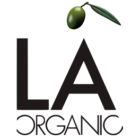Why olive oil?
When thinking about health and choosing the best products to eat, it is very important to carefully weigh up not just the food itself but also its quality so we can enjoy the health benefits of smart nutrition.
From among the different oils in the world, olive oil is definitely one of the best choices (and not only for consumption) due to its many benefits and properties, including a large number of components that help our body regenerate and combat oxidative effects. Regular consumption of virgin olive oil has been shown to increase longevity and protect against cardiovascular disease, some forms of cancer and diabetes. But not all olive oil is the same.
S2. How to choose a good olive oil
It all depends on the variety and quality of the olive (discarding those that fall on the ground), when it is picked, and harvesting styles that are more environmentally friendly for both tree and fruit. The best is hand-picking, followed by shaking-down and finally, mechanical harvesting. But beyond that, one of the main determinants is the extraction method used.
Why is cold pressing so important?
Oils obtained by cold pressing better retain their qualities and components like polyphenols and tocopherols (the main elements responsible for protection against oxidation). For this purpose, pressing must be performed at a temperature below 27ºC. This is required to make the oil less acidic (an indicator of higher quality). Not all the compounds responsible for giving oil its different aromas are volatilised in order to ensure optimum culinary properties.
The type of olive also matters
Para gustos, colores say the Spanish. The refrain means that people have different tastes but it also references colours. And the fact is not all olives make good oil and not all are pleasant to eat straight out of the can or bottle. There are at least 260 different registered olive varieties (at least 18 in Spain) that can be classified into three types depending on their colour: green, black or changeable.
Green olives gain their distinctive hue when picked at the exact right time in the ripening process. Black olives are harvested before they are fully ripe and are then treated. Finally, olives classed as changeable are picked before they have ripened and have different hues depending on how far along the ripening process they were when picked.
What are the varieties?
Some of the main olive varieties grown and consumed in Spain are arbequina, cornicabra, empeltre, gordal, hojiblanca, lechín, manzanilla, picual, picudo and verdial. There are many more, depending on the place of origin and purpose to be made of them.
Quality indicators
The olive variety itself is not so important as the characteristics it must have, together with the extraction process, in order for its oil to be top quality. For this purpose, chemical properties are taken into account, such as degree of acidity (the higher the acidity, the lower the quality), compounds that affect its oxidation (peroxides and others) and sensory qualities.
How do we know if the oil we consume is top quality?
Assuming that the oil comes from one of the varieties suitable for making juice (oil is, in short, the juice extracted from the olive) and that it was extracted using appropriate methods and when the olives were at their optimal point, it is advisable to ensure that it comes from the most recent harvest, since that way it retains its qualities better. The conservation method also comes into play, since elements like sunlight and extreme temperatures can alter its properties. In this case, it is best to use metal containers or dark glass bottles.
The importance of eco-friendly oil
Finally, to enjoy the finest extra virgin olive oil, it is always best to choose organically produced products. The importance derives not just from fact that it is sustainable and environmentally friendly but because chemical compounds, heavy metals and harmful elements tend to concentrate on fatty elements, and oil is basically oily.
Finally, we should not overlook the seals and labelling printed on the packaging, which will tell us whether the oil meets quality requirements. In this regard, LA Organic strives to offer organic extra virgin olive oil made to the highest standards.
